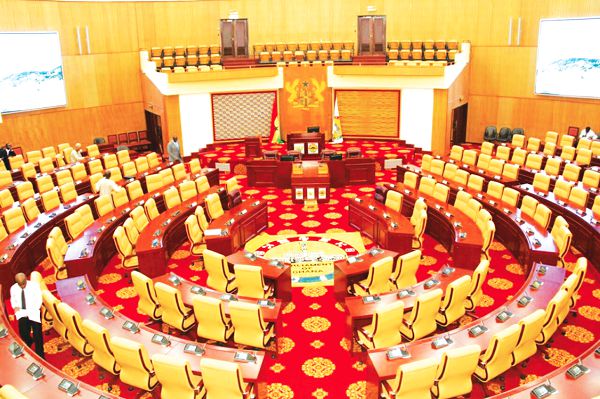Out of the 46 members submitted by President Nana Akufo-Addo as a list of ministerial nominees to Parliament for approval, there were only 8 women – a far cry from protocols and conventions the country has signed onto to which require equal participation of women in governance and decision-making processes.
For instance, Ghana is signatory to the Convention on the Elimination of All forms of Discrimination Against Women (CEDAW), which stipulates that parties must take measures to eliminate discrimination against women in politics and life in general that is making it impossible for women to be promoted on equal terms with men, participate in the formulation and implementation of government policy, and be given opportunity to hold public office, among others.
Goal five of the Sustainable Development Goals (SDGs) also speaks against all forms of discrimination against women and girls, and encourages women empowerment and promotes gender equality. It is therefore obvious that the minimum threshold of 30 percent required by the United Nations (UN) has not been achieved in Ghana.
Commenting on the list of ministerial appointees submitted to Parliament for approval, Member of Parliament for Tamale South and Leader of the NDC caucus, Haruna Iddrisu, expressed his dissatisfaction, saying the president could have done better.
“He owes it as a duty to unite this county and recognise talent and the human resources of each region of Ghana, and also with gender. Compared with President Mahama’s era, he could have done better.”
Speaker of Parliament Alban Sumana Bagbin, in his opening speech at the beginning of the 8th Parliament, categorised the Affirmative Action bill as part of critical laws which call for urgent action.
“Some critical laws could not be passed by the previous Parliaments, and these have gone into abeyance with the dissolution of the 7th Parliament. Draft legislations such as the Affirmative Action bill, Spousal Rights bill, Standing Orders of the House since 2002, the Budget bill, International Business and Agreement bill.
“I call on the responsible sponsoring agencies or institutions to resubmit these bills to the House early for consideration,” he said.
The Affirmative Action bill seeks equal representation and participation of both women and men in governance, public positions of power and all decision-making spaces of the country. The bill mandates public institutions to adopt gender policies – including recruitment policies aimed at achieving balanced structuring of those institutions in terms of gender.
It also requires that all sectors reserve a percentage of their employment for women. All political parties are also encouraged to allot party quotas so as to promote women’s participation in politics.
Ghana ranks 141st in the world in terms of women’s representation in Parliament, with only thirty-eight (38) women out of the two hundred and seventy-five (275) Members of Parliament.
As it stands now, the Affirmative Action bill presents itself as the only sure way to end all forms of discrimination on the basis of gender – with instances in other countries making it a proven effective measure of enhancing development as a result of women’s inclusion and participation in government.
The president, on different platforms across the world, has also declared his commitment to eliminating gender discrimination in any form. Hence, the number of women listed in his list of appointees to serve in his second term is considered shocking and unsatisfactory by many.










